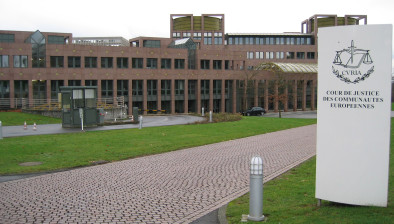High Court: Minister who wrongly applied EU regulation must reconsider residence card application
A man who claimed that he was a dependant of his brother, who is a naturalised citizen of the UK, has been granted an order of certiorari quashing the decision refusing him a residence card.

About this case:
- Citation:[2019] IEHC 566
- Judgment:
- Court:High Court
- Judge:Mr Justice Max Barrett
Finding that the Minister for Justice and Equality had erred in his application of the EC (Free Movement of Persons) Regulations 2015, Mr Justice Max Barrett remitted the matter to the Minister for fresh consideration.
Background
The applicants, Jaglul Hoque Shishu and Jabed Miah, are brothers from Bangladesh.
Mr Shishu is a naturalised UK citizen and is exercising his free movement rights as an EU national to work and live in Ireland. Mr Miah is a citizen of Bangladesh, who claims to have lived as a dependent of his brother in England.
In October 2018, the Minister for Justice and Equality refused Mr Miah’s application for a residence card having determined that he was not a dependent of Mr Shishu within the meaning of reg.5(1) of the EC (Free Movement of Persons) Regulations 2015.
Thereafter, Mr Shishu and Mr Miah instituted the within proceedings.
In the High Court, Mr Justice Barrett considered whether the Minister:
- Erred in his application of the relevant provisions of the EC (Free Movement of Persons) Regulations 2015?
- Acted unreasonably and/or in breach of EU law and/or the 2015 Regulations in determining that Mr Miah had failed to provide sufficient evidence that he was a member of Mr Shishu’s household?
- Acted unreasonably and/or in breach of fair procedures in concluding that Mr Miah had failed to submit satisfactory evidence that he was a dependent of Mr Shishu and/or a member of his household, without adopting procedures which would have enabled Mr Miah to know what evidence he was required to adduce in order to establish same?
- Acted in breach of fair procedures and/or natural and constitutional justice by refusing Mr Miah’s application on the basis of matters which were never put to him?
- Acted unreasonably and/or irrationally in refusing Mr Miah’s application on the basis that he was not satisfied that he was dependent on Mr Shishu in the UK?
Finding that the Minister erred in his application of the EC (Free Movement of Persons) Regulations 2015, Mr Justice Barrett said by bringing reg.5(5)(a) criteria to bear in a reg.5(2) assessment of status under reg.5(1) and by concluding, as he did, that there was a want of evidence required under reg.5(5)(a), the Minister erred in law in identifying a deficiency of documentation provided in respect of matters that did not properly arise for consideration.
Secondly, Mr Justice Barrett found that the Minister acted unreasonably in determining that Mr Miah failed to provide sufficient evidence of being a member of his brother’s “household”. Mr Justice Barrett commented that the Minister did not have regard to different conceptions of the term “household” which were wider than the ordinary English meaning of the word.
Thirdly, Mr Justice Barrett said it was not reasonable for the Minister to have taken an approach which amounted to “‘Put in an application, I will not tell you even at the most general level, not even by way of non-binding guidance, what type of material I am looking for, but I will let you know if I do not see it”. Mr Justice Barrett said it was unreasonable and unfair that the Minister should know what, at a general level, he is looking for when it comes to assessing applications generally, but will give no sense to applicants as to what it is that he is looking for – and that this unreasonableness or unfairness flowed from the “closeted manner” in which the Minister “elected to discharge his obligations to the detriment of applicants who, as a consequence of his approach, are unfailingly operating to some extent ‘in the blind’ when making an application”.
Considering the fourth question, Mr Justice Barrett referred to Chittajallu and another v. MJE [2019] IEHC 521 and answered the question in the negative. Mr Justice Barrett said “Unlike in Chittajallu, there is no suggestion in this case that the Minister had specific expectations as to particular documentation that would be produced. Absent that kind of specific expectation, there comes a point when a decision falls to be made on whatever material has been put before the Minister”.
Also answering the final question in the negative, Mr Justice Barrett was satisfied that this was a decision the Minister could properly reach on the evidence before him.
Granting the order of certiorari sought, Mr Justice Barrett remitted the matter to the Minister for fresh consideration.
- by Seosamh Gráinséir for Irish Legal News










